The 3rd ML4NGP Meeting held from 20 to 23 May 2025 at the heart of the old town in Vilnius, was a truly success. The event showcased cutting-edge research at the intersection of machine learning (ML) and non-globular protein (NGP) science—from intrinsically disordered proteins (IDPs) and low-complexity regions to fibrillar and amyloid structures.
“I am proud to say our 3rd ML4NGP meeting in Vilnius was a great success, bringing together more than 100 participants from 31 countries for four days of scientific exchange and collaboration. The meeting was exceptionally well organized, creating a dynamic atmosphere that fostered in-depth discussion,sparked new connections, and strengthened existing ones. The meeting offered fresh perspectives on machine learning and non-globular proteins. The high quality of the talks and the lively, well-attended poster sessions reflected the strength and diversity of our community. A sincere thank you to all who contributed—we look forward to continuing this journey at our next meeting.”
Zuzana Bednarikova, Action Vice-Chair
The meeting opened with warm welcomes and followed by a deep dive into the protein universe! We started the meeting with amazing speakers, including Pau Bernadó, Juan Cortes, Joana Pereira, among others. Talks covered ensemble generation & structural insights into IDPs and how ML and modelling can work together with experimental techniques like NMR and FRET to study dynamics and conformation of IDPs, multi-domain proteins with IDRs.
The afternoon session opened with a focused Working Group (WG) meeting, where participants reflected on ML4NGP’s progress and coordinated future goals ahead of the Action’s mid-term evaluation. The scientific sessions followed, featuring talks on frustration as a descriptor of disorder (Edgar Chacón Sánchez), functional impacts of missense variants (Elodie Laine), and a new framework for describing protein motion (Sergei Grudinin).
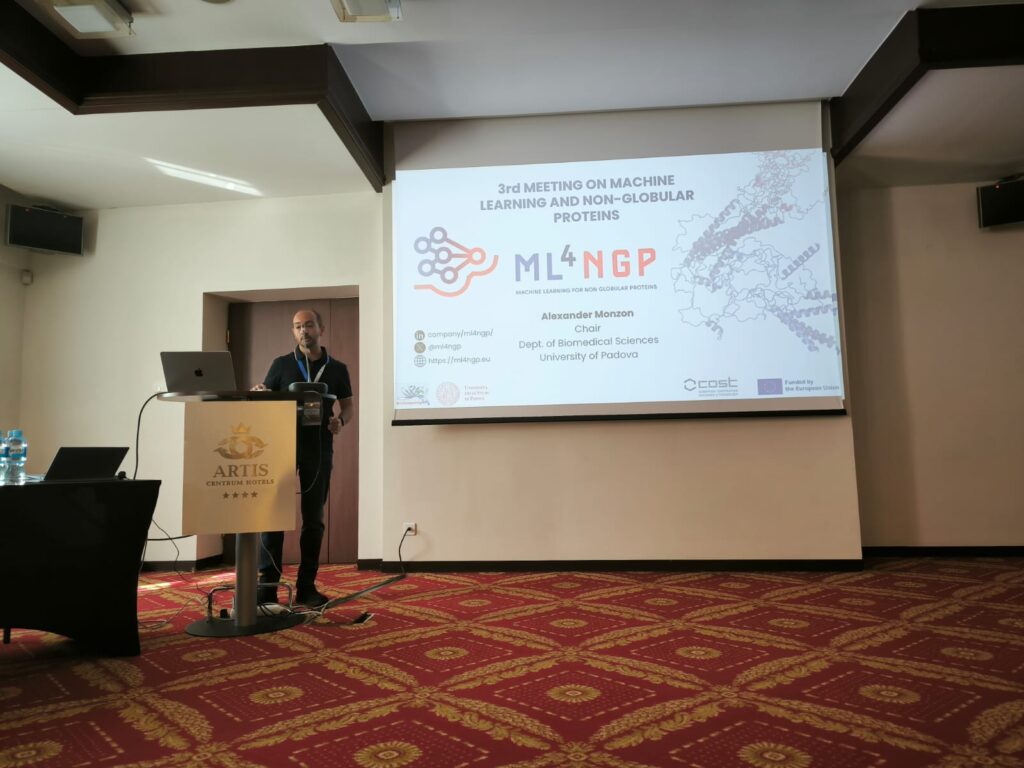
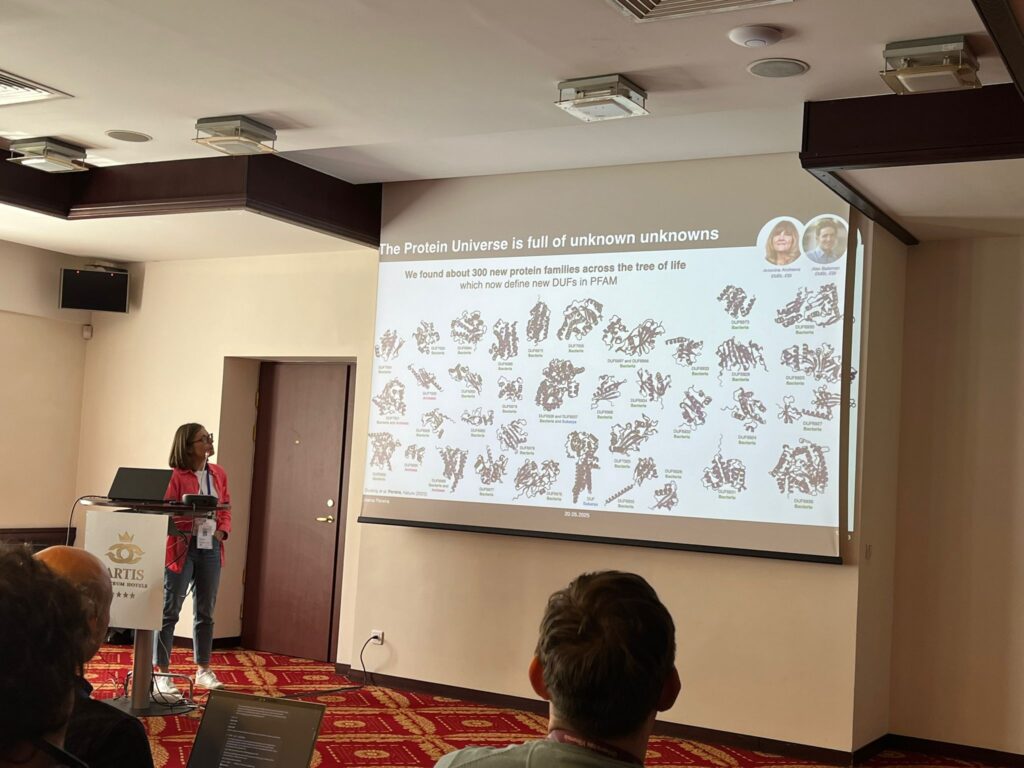
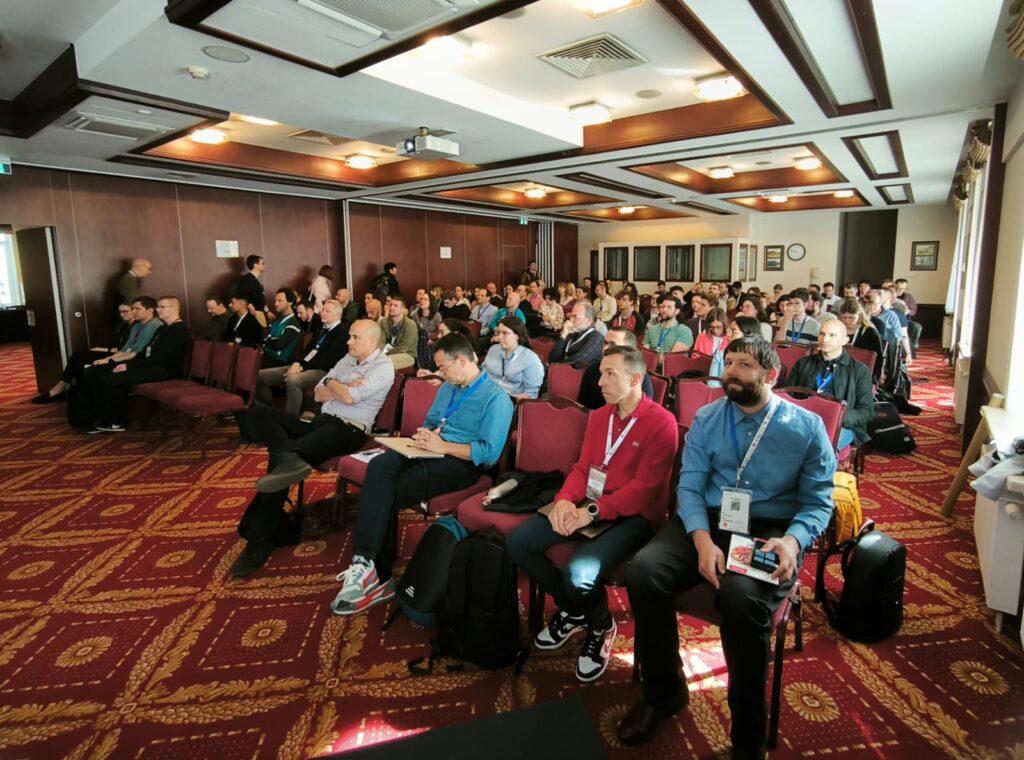
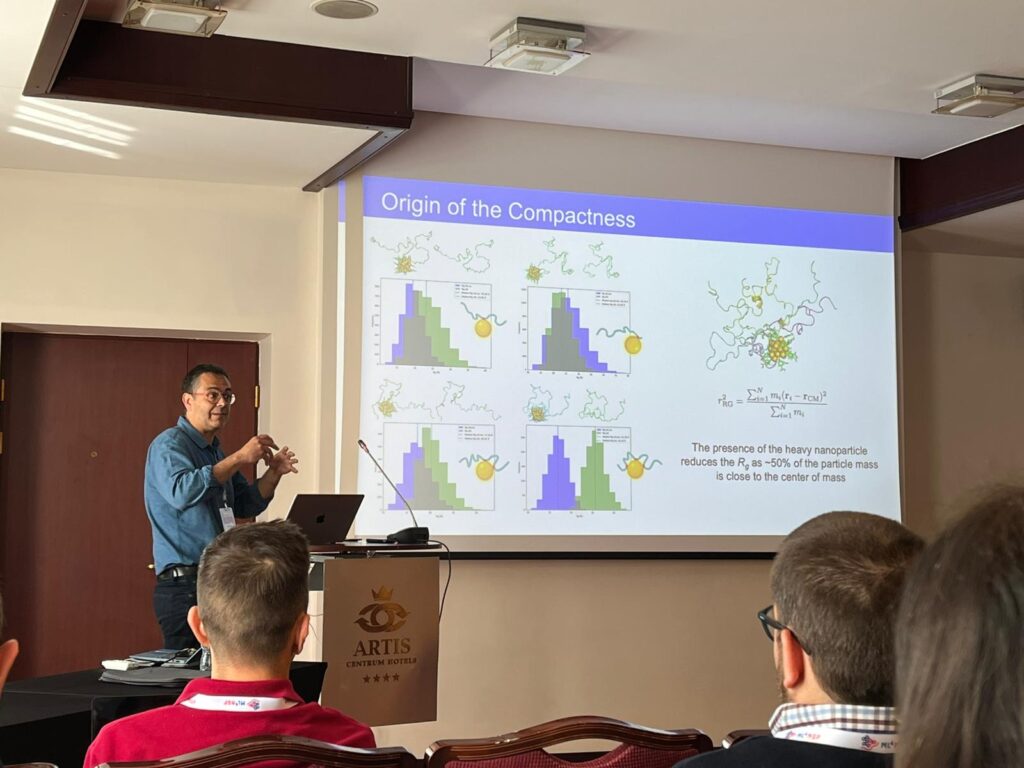
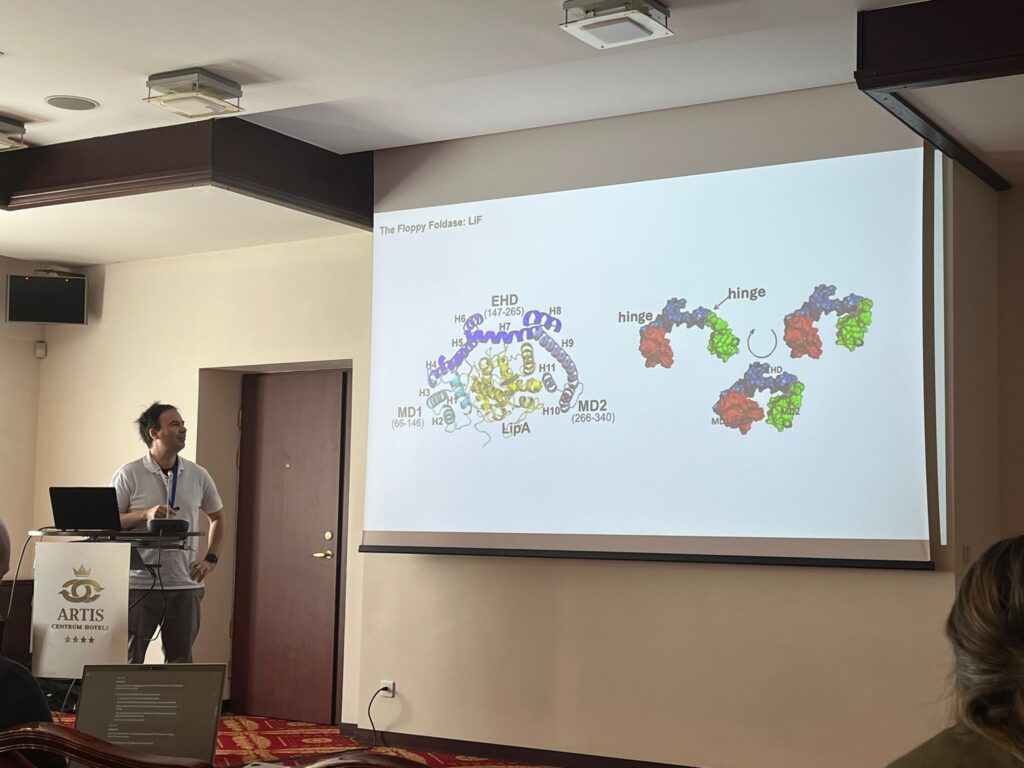
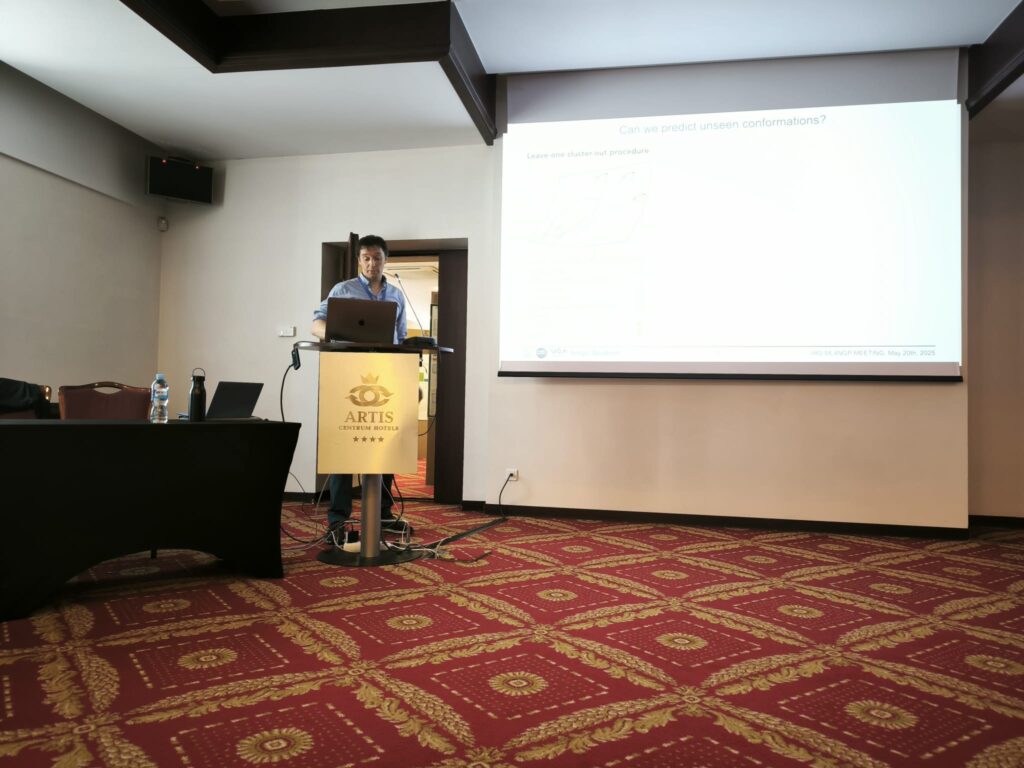
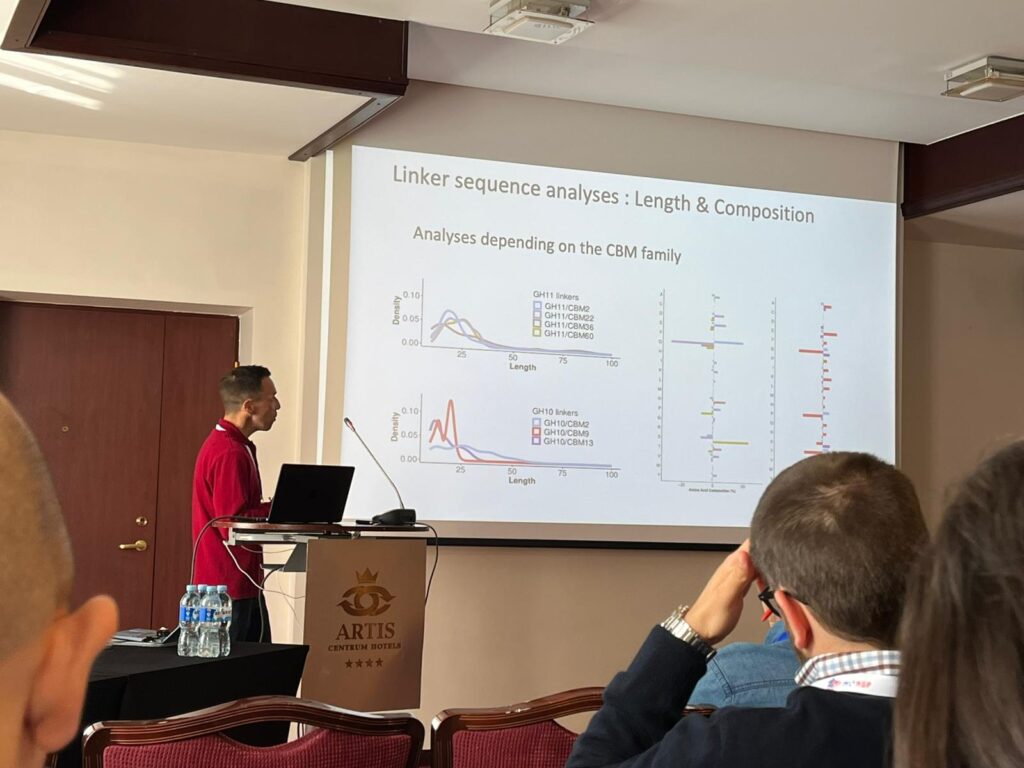
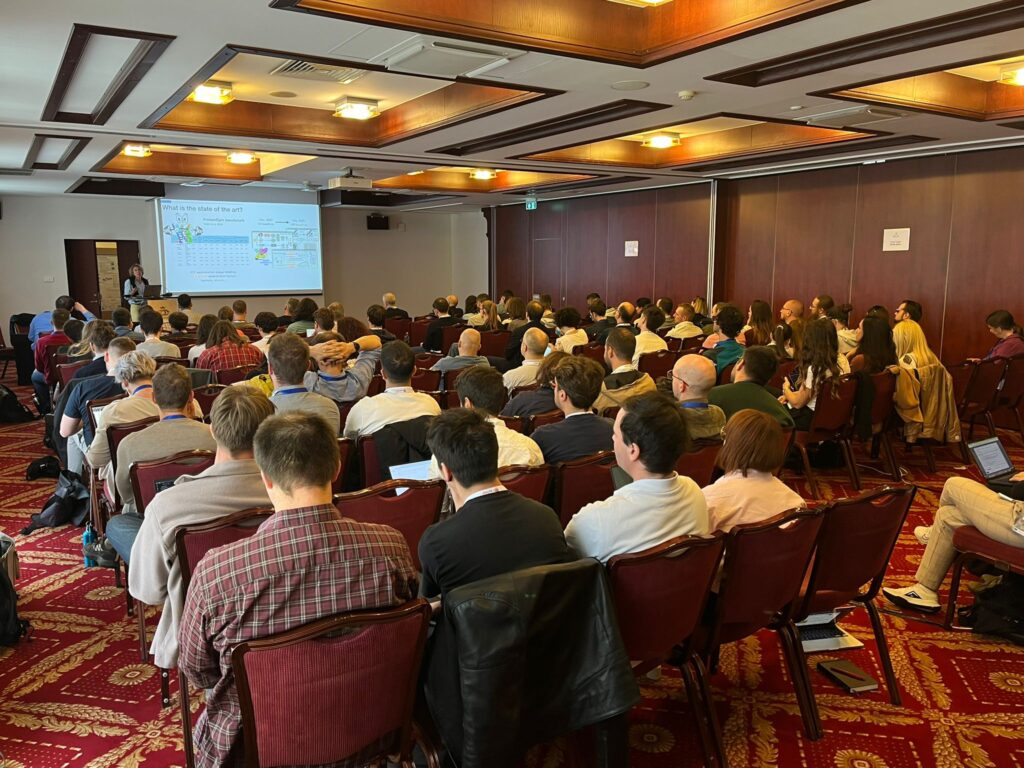
Photos from the participants and speakers on the first day of the 3rd ML4NGP meeting, in the Artis Centrum Hotel, in Vilnius, Lithuania.
Day two was rich in content and scientific energy. Keynote speaker Prof. Paul Robustelli opened the day with insights into physics-based modeling of IDP ensembles and binding mechanisms.
We continued with Massimiliano Bonomi, Dirk Linke and Thorben Cordes exploring bAIes – integrating AI to probe protein structure & dynamics and the power of smFRET for systematic analysis of protein structure and dynamics. We wrapped up the session with a fun, fast-paced flash poster round—high energy and great science in every slide!
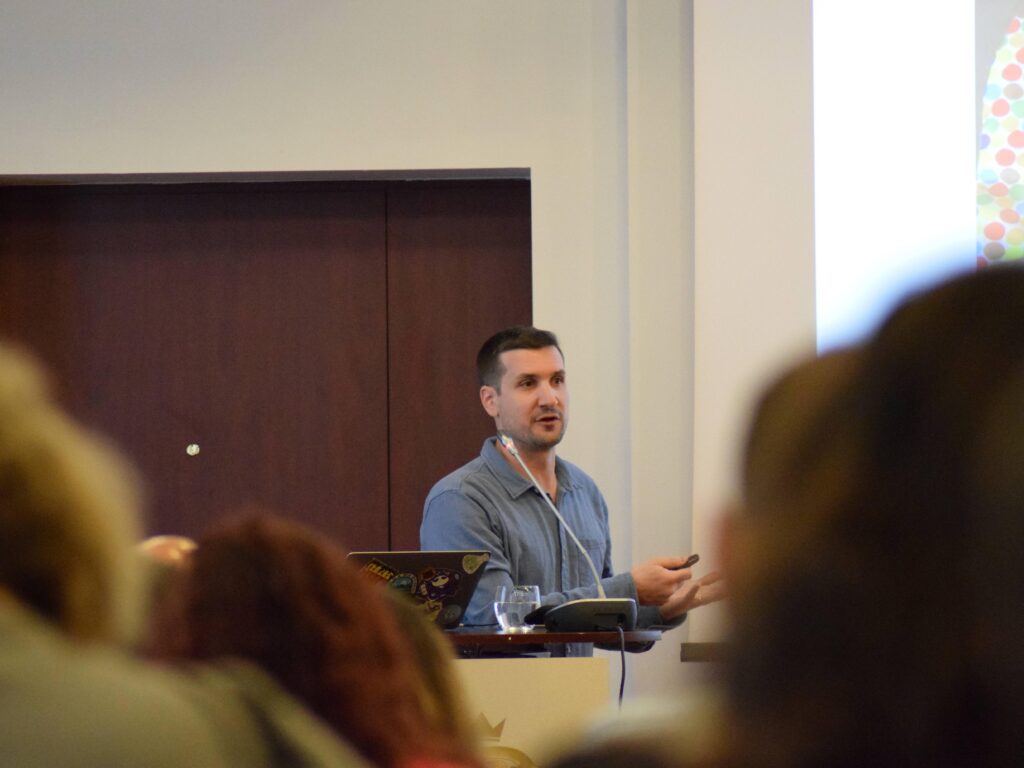
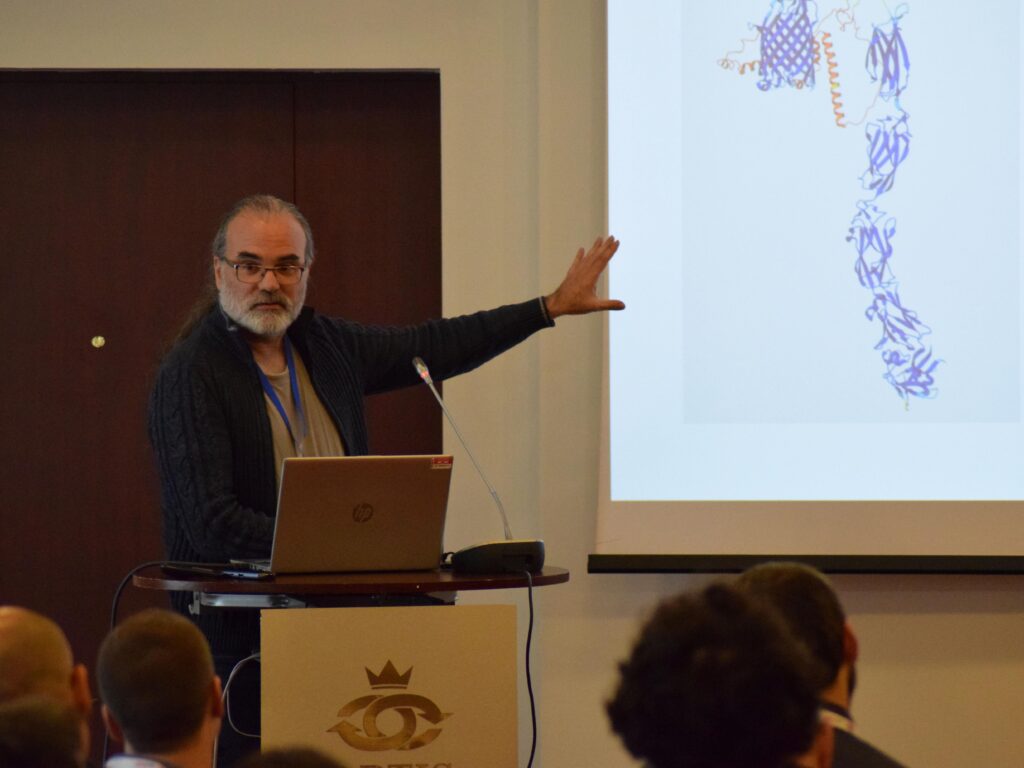
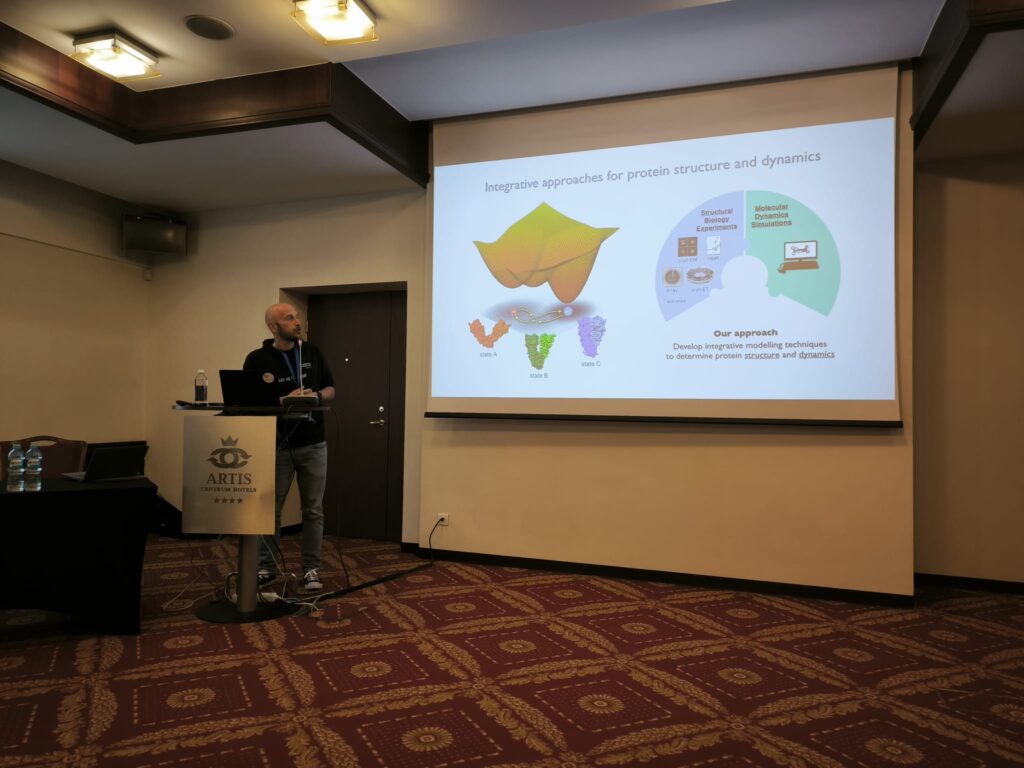
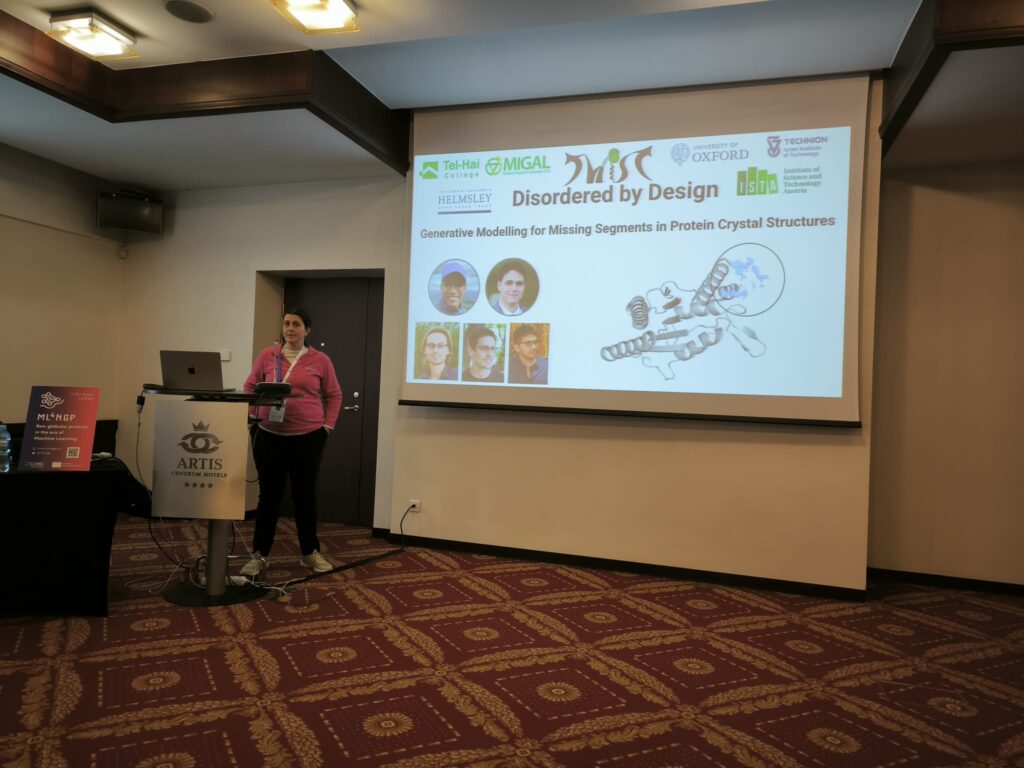
Photos from the talks and flash poster presentations on the second day of the 3rd ML4NGP meeting, in the Artis Centrum Hotel, in Vilnius, Lithuania.
The afternoon featured a compelling keynote from Alan M. Moses on zero-shot ML for IDP prediction, then back to the present with NMR & smFRET shedding light on IDP structure & interactions, simulations modeling phosphorylation effects on dynamics & LLPS and model revealing how NPCs enable fast, selective cargo transport. The day ended with the first poster session, showcasing diverse work from early-career to senior researchers.
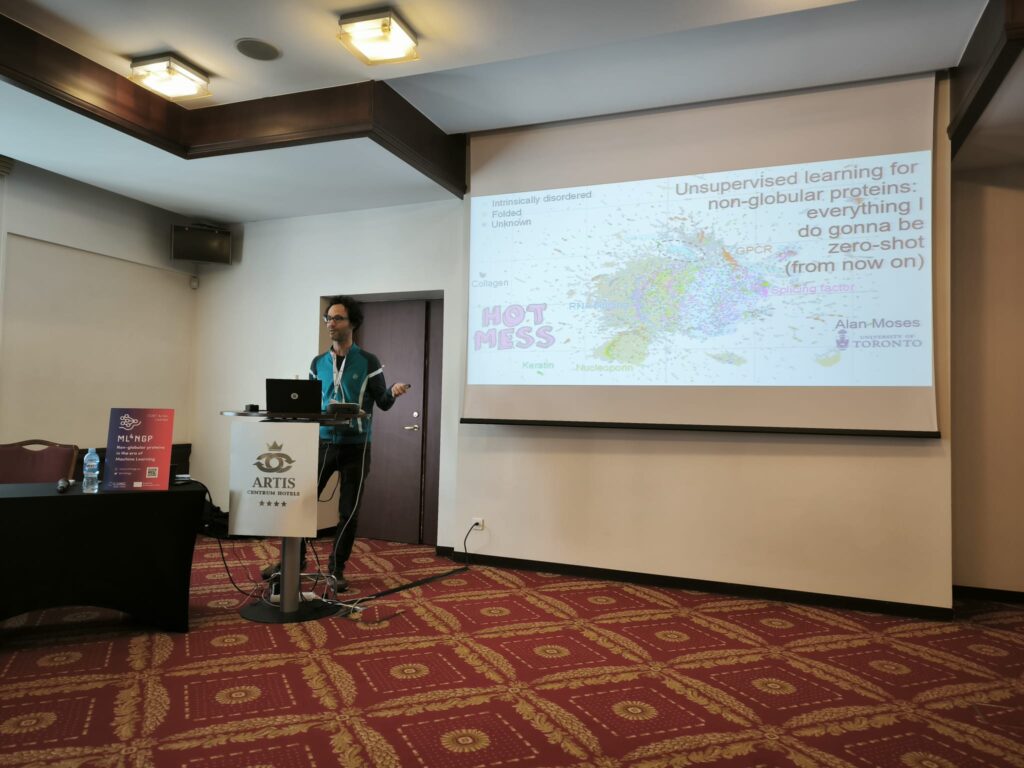
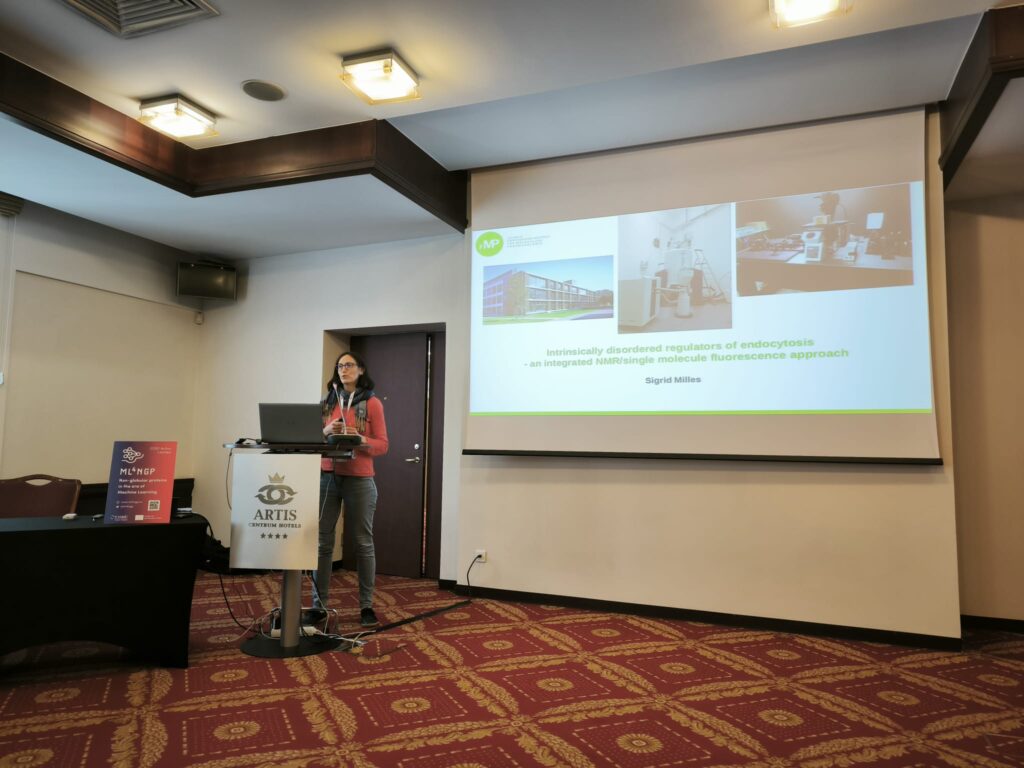
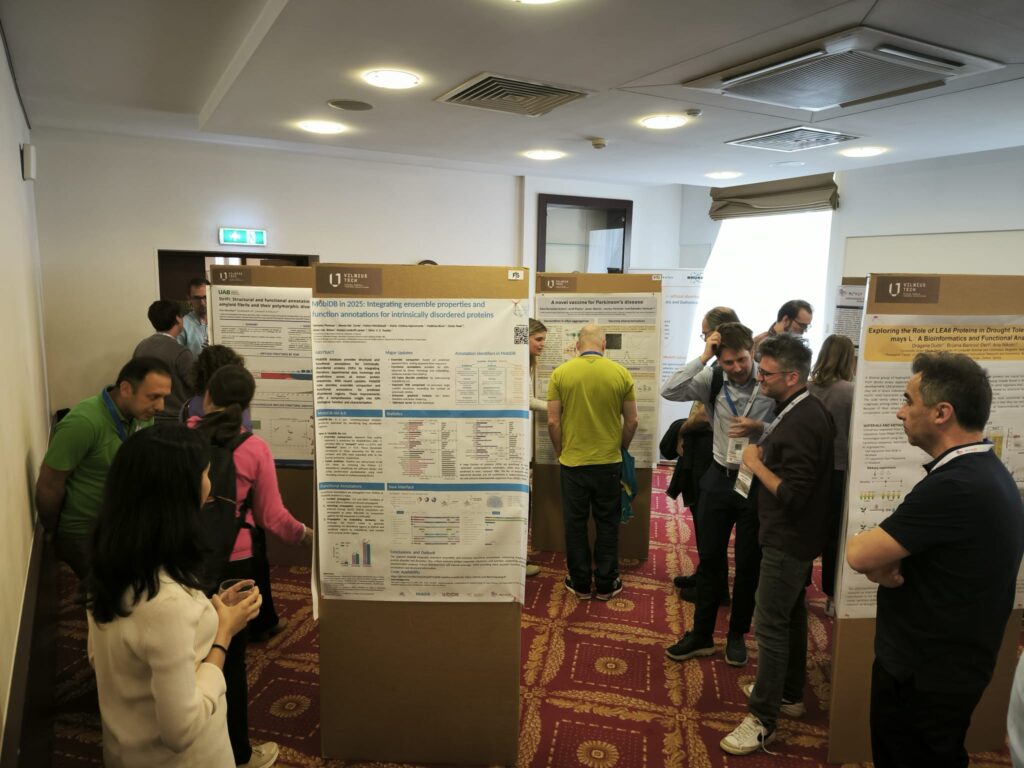
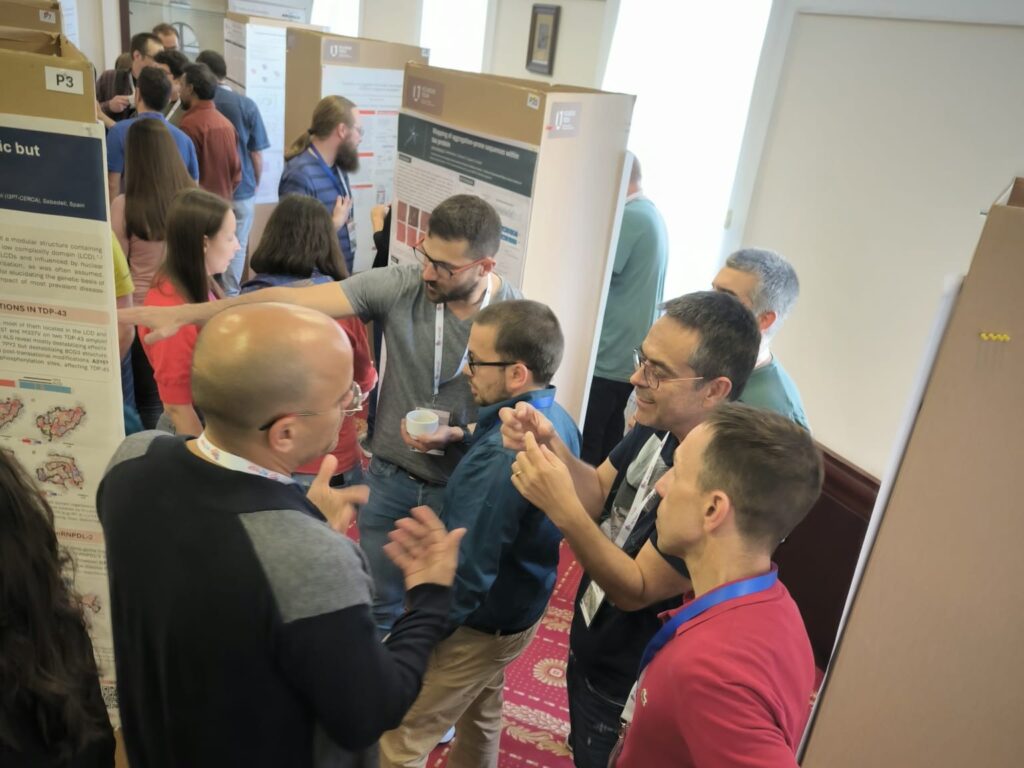
Presentations by Alan M. Moses and Sigrid Miles and some moments during the first poster session on the second day of the 3rd ML4NGP meeting, in the Artis Centrum Hotel, in Vilnius, Lithuania.
“This year, the ML4NGP conference was both inspiring and thought-provoking for me. It was great to see many new faces joining the community, bringing fresh perspectives and enthusiasm to the field. The poster and flash poster sessions, which is always my favourite part of any conference, demonstrated a clear improvement in scientific quality and presentation, showcasing a wide range of innovative machine learning approaches applied to non-globular proteins. For the first time, we held a joint meeting of all working groups, which turned out to be a productive format for identifying shared challenges and fostering cross-group exchange within a brief and focused session. As for WG3, the proposed deliverables were revised and reformulated, and we also heard several exciting new ideas for future directions. The discussions following the presentations were engaging and insightful, broadening our perspectives and highlighting key areas where concentrated efforts could have the largest impact. All in all, the open and collaborative spirit of the meeting was truly encouraging, and I look forward to building on this momentum in our upcoming activities.”
Jovana Kovačević, WG3 leader
The third day of the meeting began with a keynote from Ora Furman-Schuler on modeling monomer–monomer interactions and multivalent interactions in proteins with AlphaFold, followed by talks on coiled-coils, side-chain ring structures, and neurodegenerative disease pathways. The afternoon session spotlighted drug discovery for disordered proteins and the role of ML in understanding α-synuclein polymorphism, tau–lipid interactions, and crosslinking MS workflows.
The second poster session closed this rich and insightful day with vibrant engagement and fresh connections across career stages and countries.
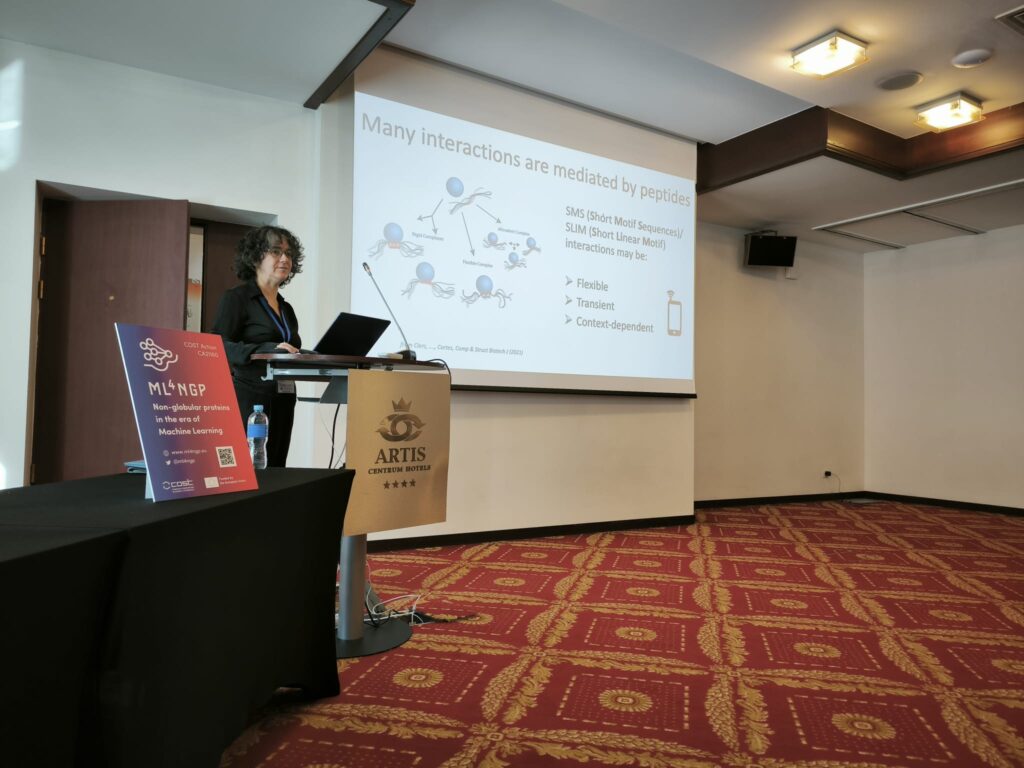
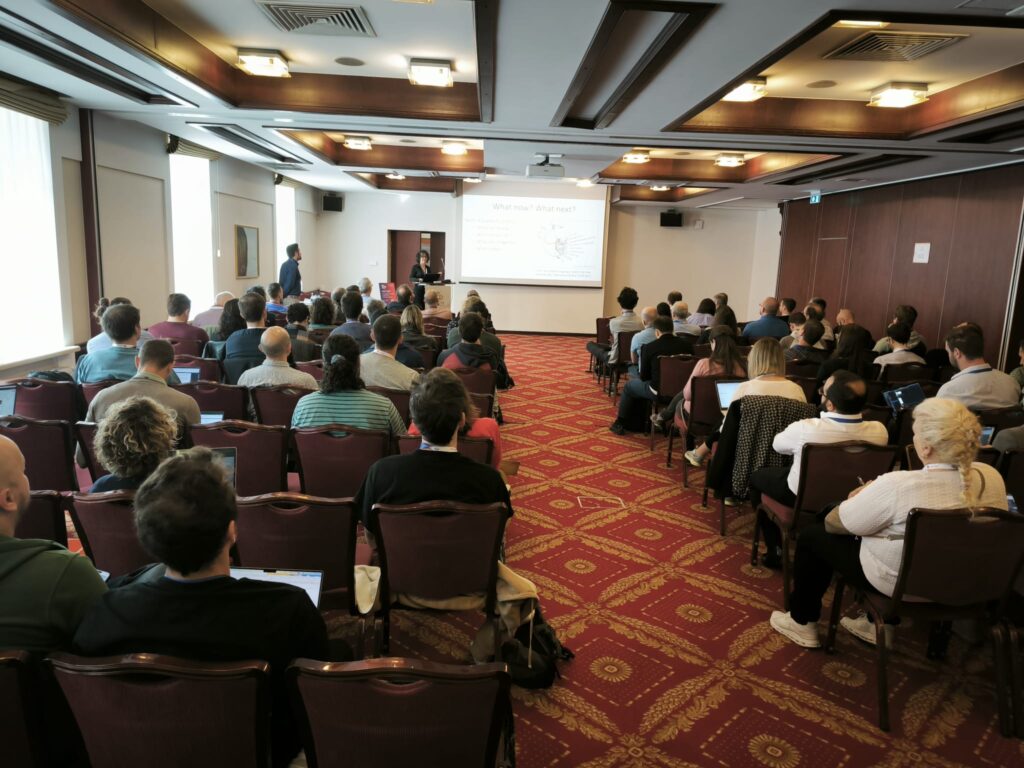
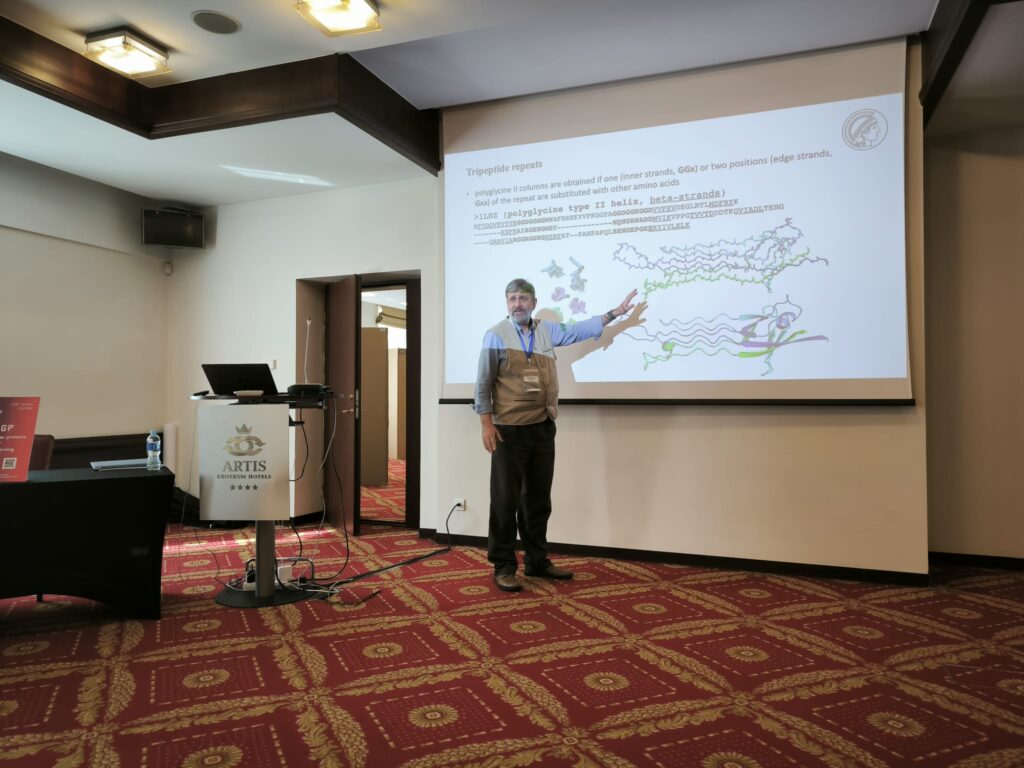
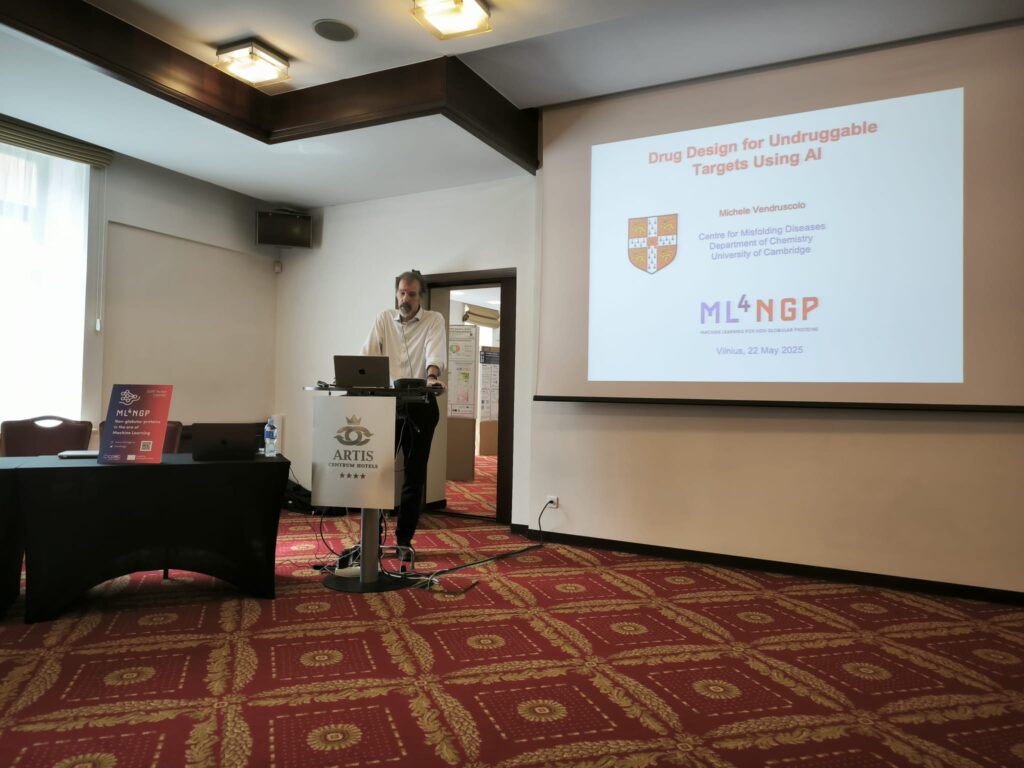
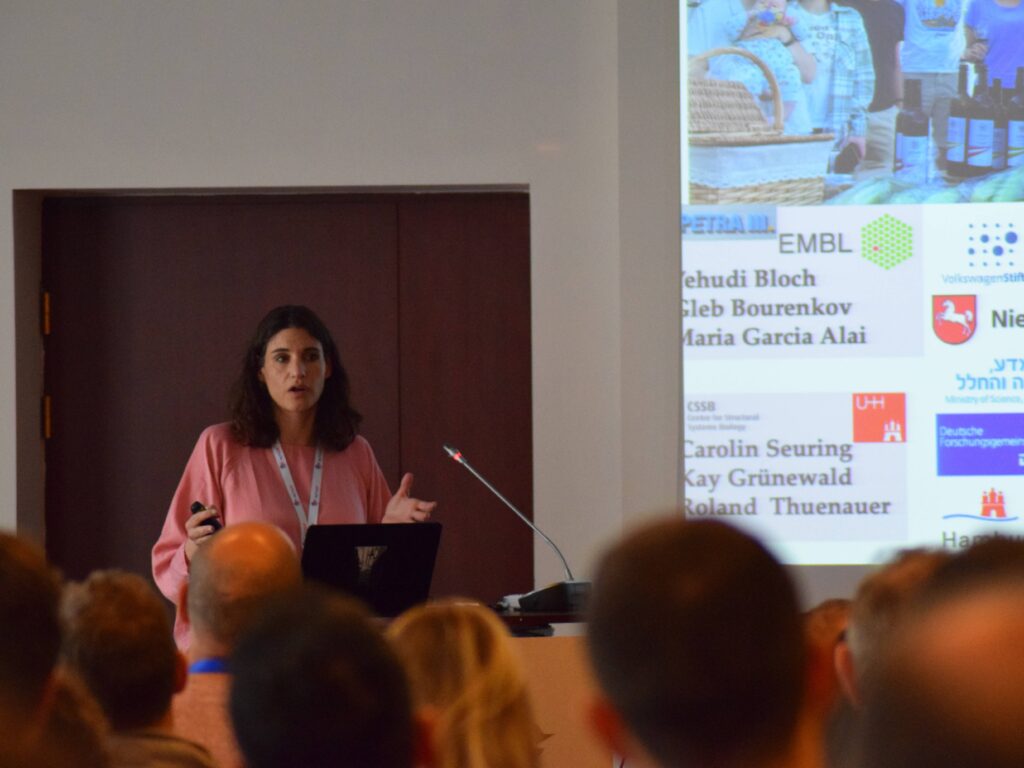
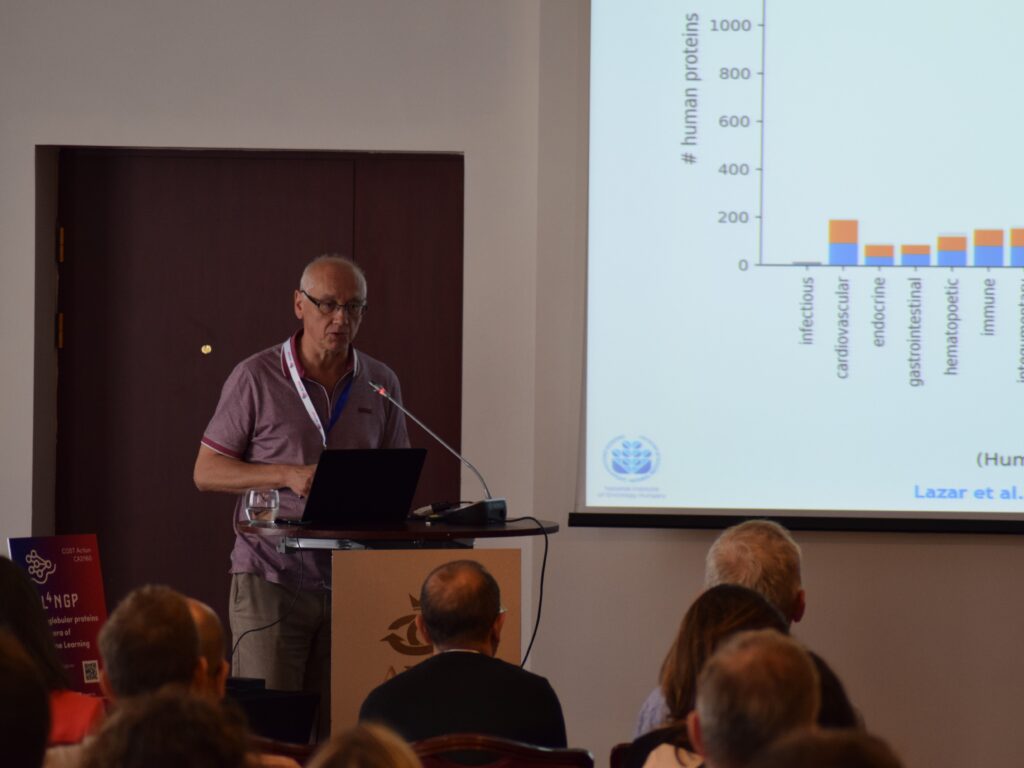
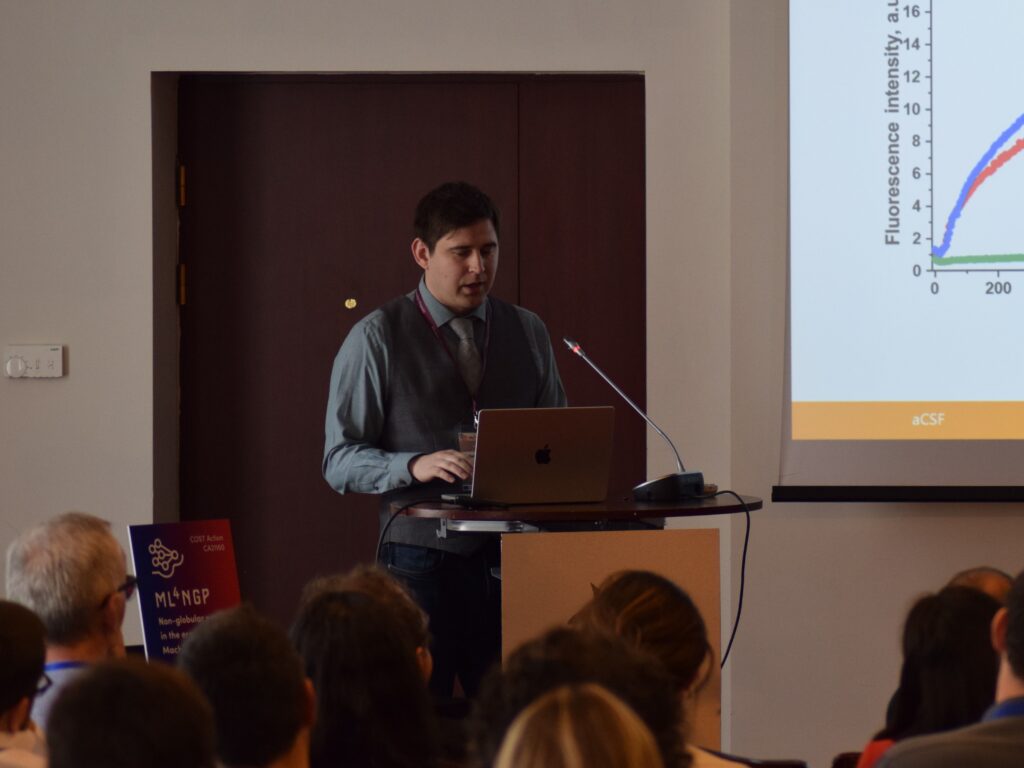
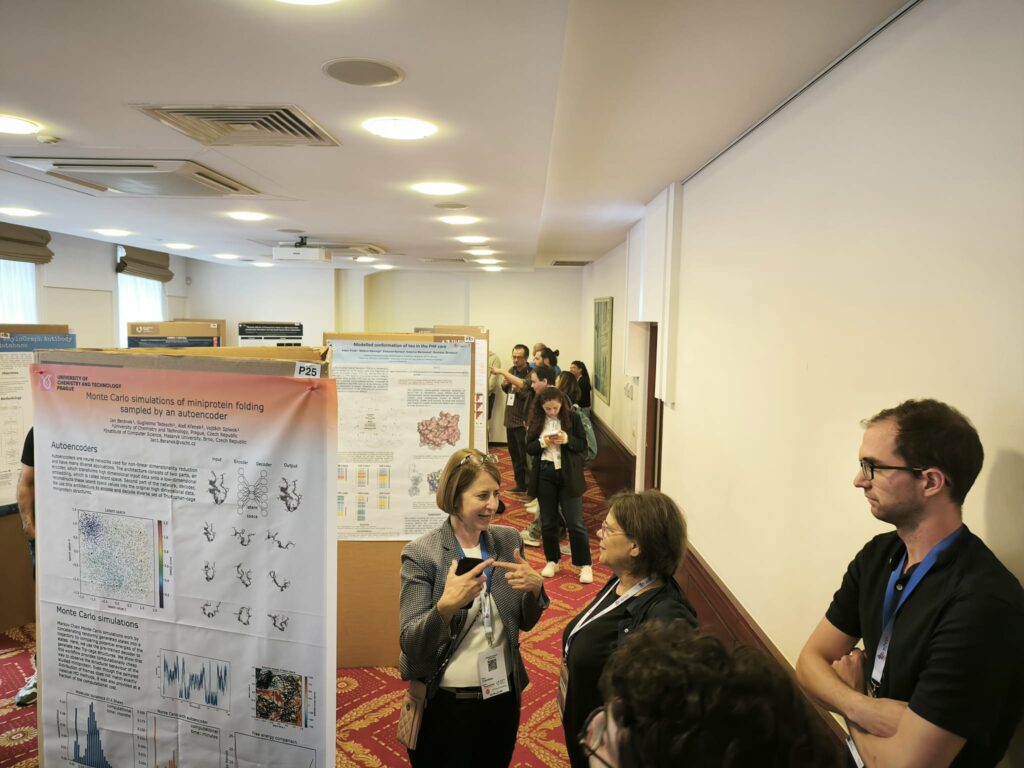
Photos from the keynote and selected talks on the third day of the 3rd ML4NGP meeting, in the Artis Centrum Hotel, in Vilnius, Lithuania.
For the first time, the 3rd ML4NGP Meeting hosted a Round-Table on Challenges and Opportunities in NGP Research. The session brought together diverse voices from academia, biotech companies. tech transfer specialists and representatives from European networks to address obstacles and share solutions for ML applications to research NGP. It was a fresh environment wih an incredible energy full of insights!
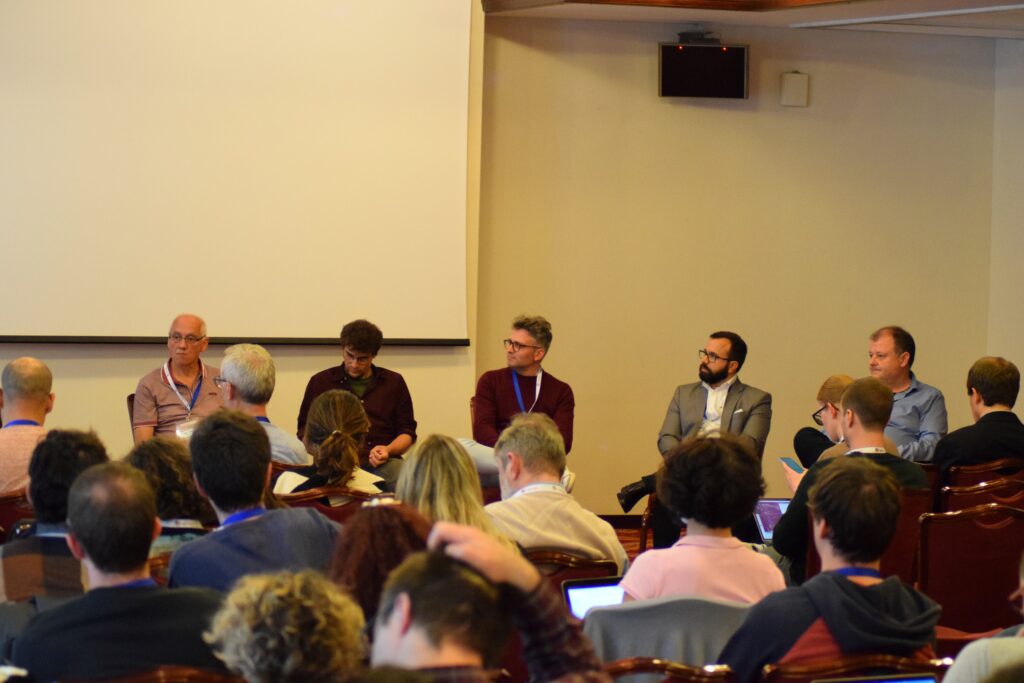
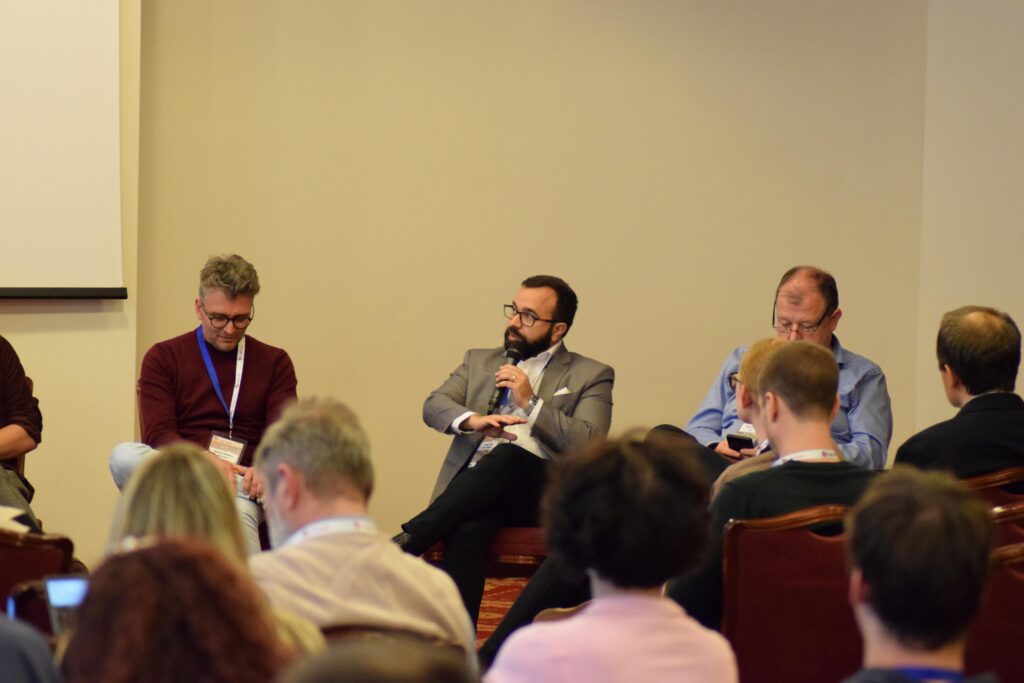
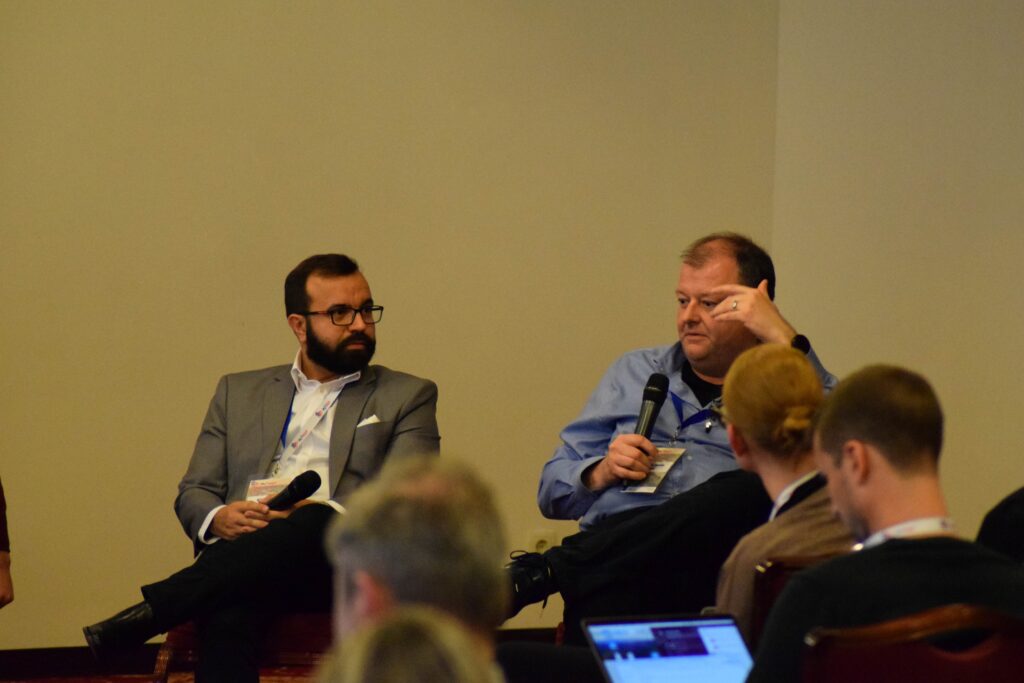
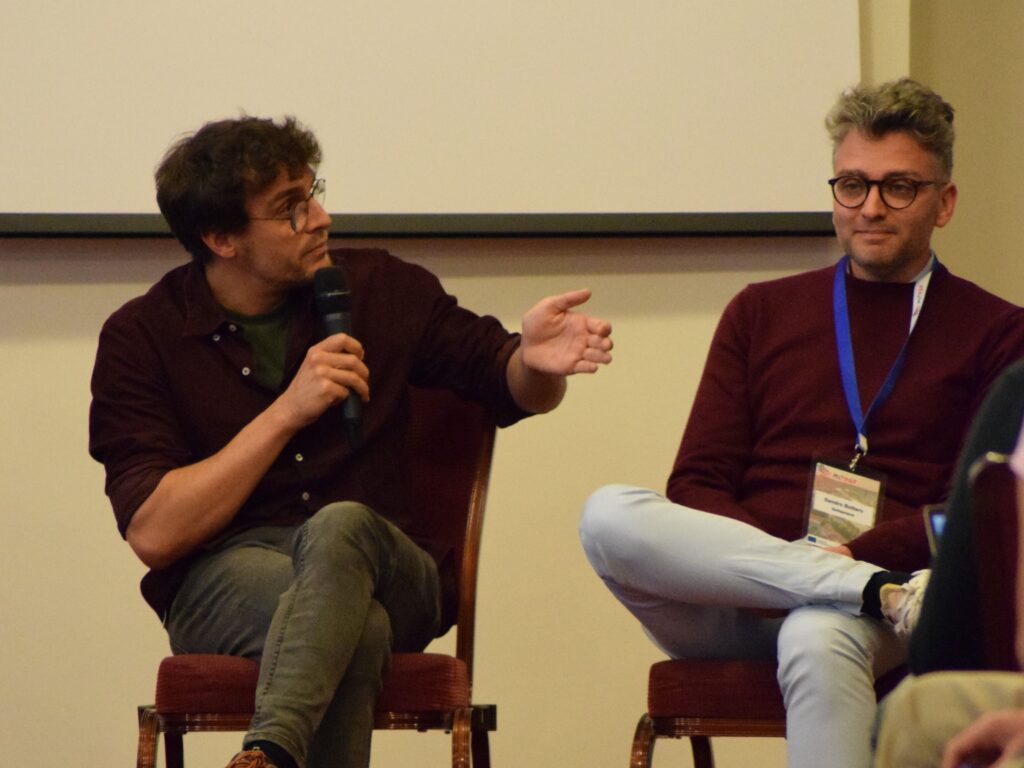
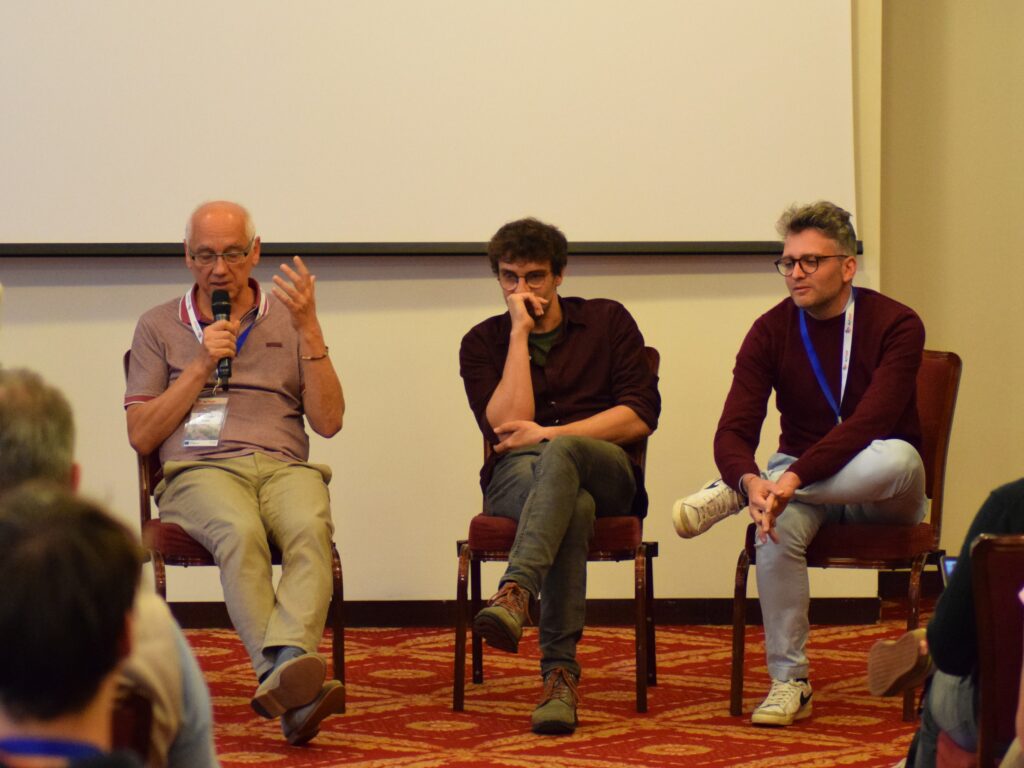
Moments of sharing and exchange of knowledge during the round-table held on the third day of the 3rd ML4NGP Meeting, In Vilnius.
“The round-table was a very interesting and enriching experience. The panel brought together five researchers with extensive experience in both academia and medium-sized companies, making them particularly well-positioned to explore common ground and build meaningful bridges between these worlds. There was a lively exchange focused on finding the best ways to foster interaction between the private and academic sectors. One key point raised was the recognition of the significant talent in the private sector, challenging the common perception that top talent is found only in academia. We also discussed the importance of proper licensing for software developed in academic settings, to ensure both appropriate use and acknowledgment when adopted by companies. In parallel, we highlighted the need for private companies to embrace the open software era, especially considering they benefit greatly from academic research which is often publicly funded through taxes.”
Gonzalo Parra, WP4 leader and Chair of the Round-Table
The final day began with Prof. Silvio Tosatto presenting insights from CAID Round 3, underscoring the need for data deposition and richer datasets to fuel machine learning advancements. The session continued with tools to assess mutation impact, modeling temperature-dependent ensembles and explore low complexity regions.
The final session of the 3rd Meeting on Machine Learning and Non-Globular Proteins wrapped up with insights into SARS-CoV-2 N-protein dynamics, STRP geometry (GeomeTRe), integrative NMR/SAXS+MD analysis, and deep learning force fields.
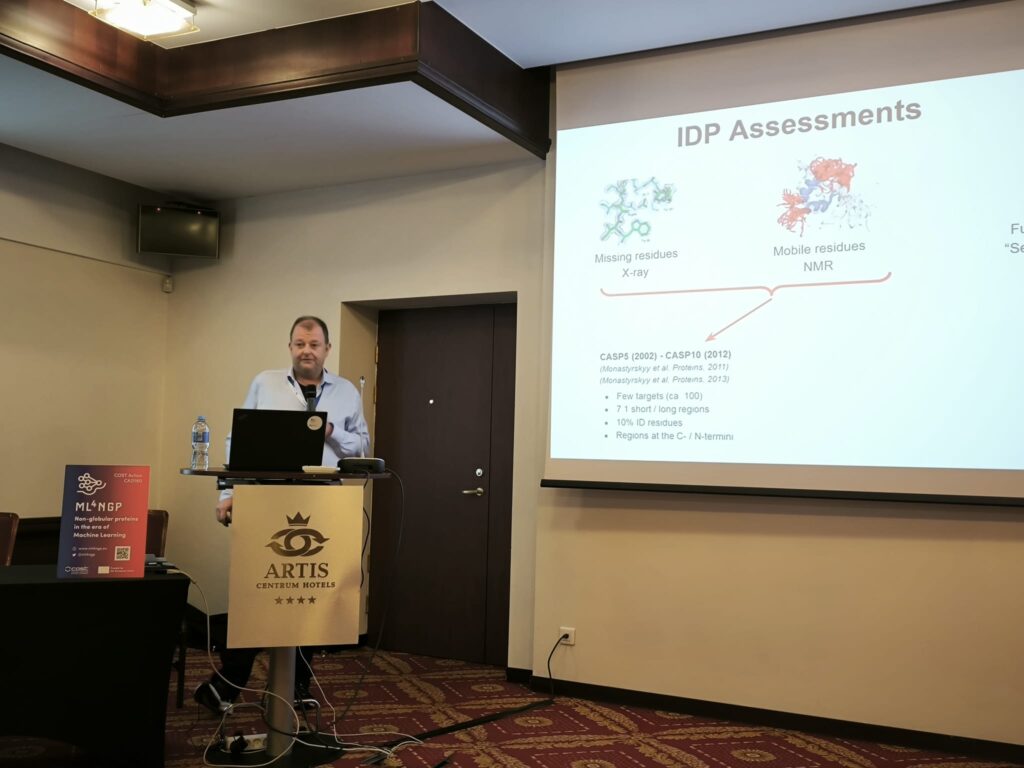
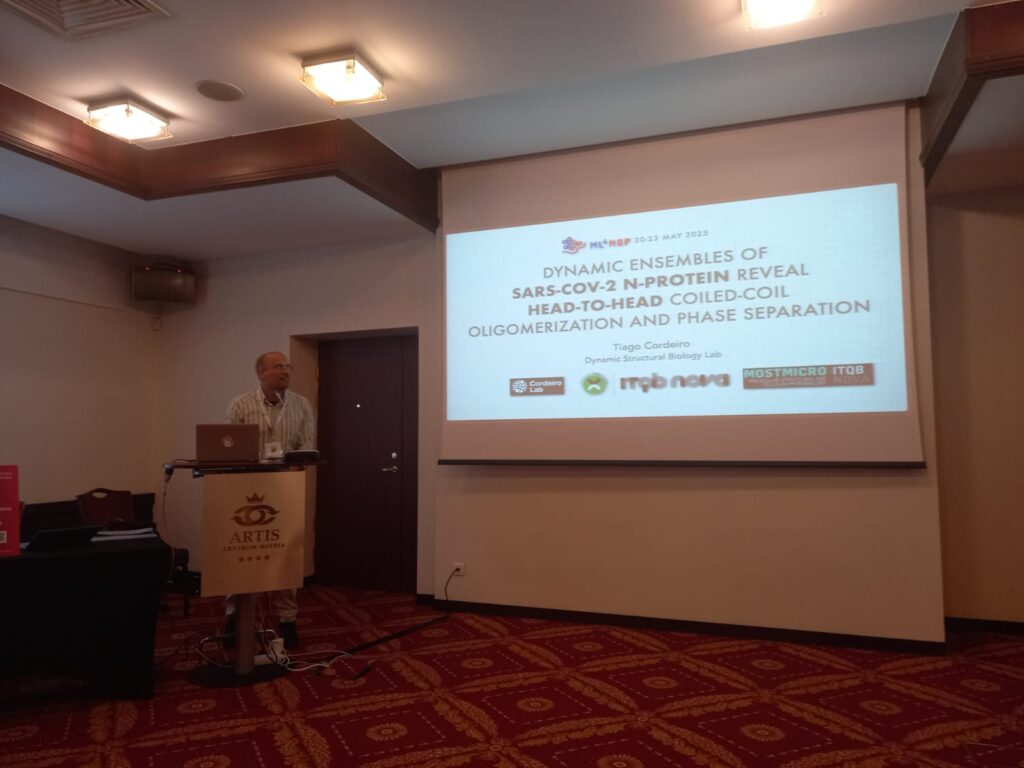
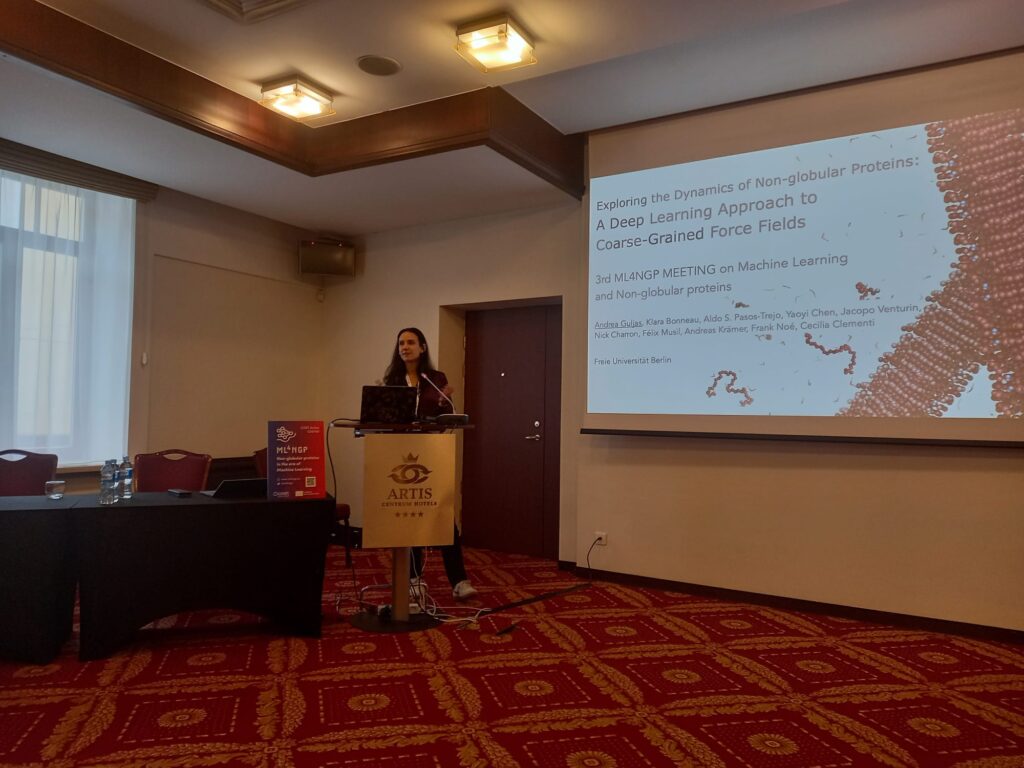
Photos of the keynote and selected talks on the last day of the 3rd ML4NGP meeting, in the Artis Centrum Hotel, in Vilnius, Lithuania.
“Organizing the 3rd ML4NGP Conference was an exciting and rewarding experience for our entire team. From accepting the invitation to host, securing the venue, and planning lunch menus to assembling welcome bags, everyone gave their best to make the event a success. We’re delighted to hear that participants enjoyed both the conference and their time in Vilnius. It was a memorable experience for us as organizers and, we hope, equally meaningful for all attendees. We’re already looking forward to the next ML4NGP gathering!”
Darius Šulskis, Local Organizer
Over the last years, the ML4NGP meetings denote the progress of machine learning methods for non-globular proteins and its validation/integration with experimental methods. Once again, this meeting has reinforced our mission to develop tools, share knowledge, and build a connected, inclusive community around machine learning for non-globular protein science.
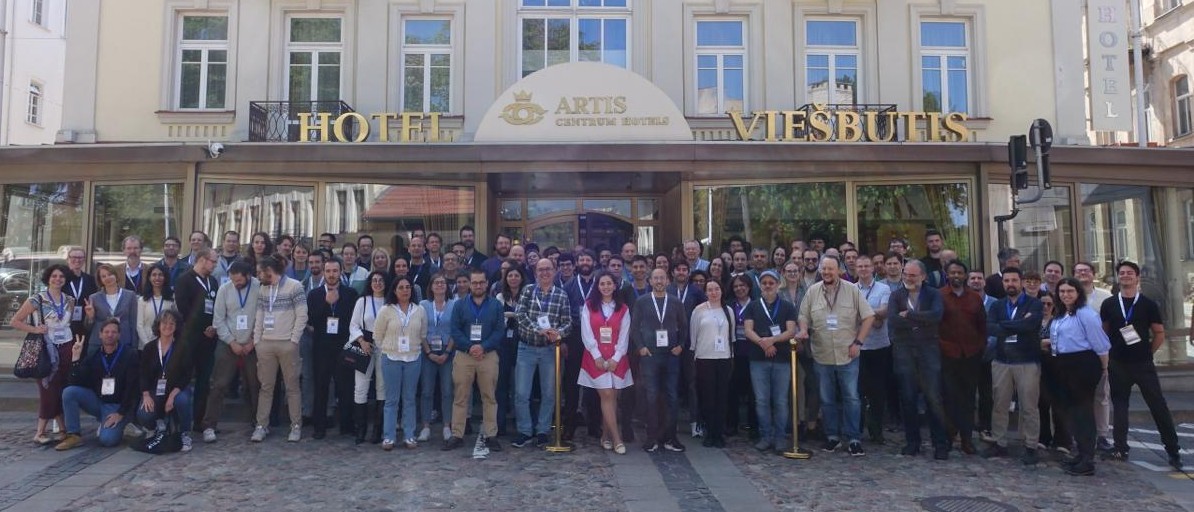
Group photo with all participants and speakers of the 3rd ML4NGP meeting, in front of the Artis Centrum Hotel, in Vilnius, Lithuania.
“This year’s meeting brought together researchers from different countries and disciplines to present the latest advances and technologies in the study of non-globular proteins. It fostered a vibrant atmosphere that encouraged discussions on key topics in the field and paved the way for future collaborations among members of the network. I personally enjoyed the scientific program and the opportunity to meet in person with many collaborators to discuss and plan future activities of this Action”
Alexander Monzon, Action Chair
Stay tuned for upcoming initiatives and the next ML4NGP meeting, which will take place next year in Warsaw, Poland!
